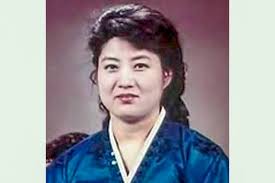North Korea’s recall of a 2011 documentary praising Kim Jong Un’s mother has stirred curiosity and speculation about the secrecy surrounding her identity and background. This move, reported by two sources inside the country to Radio Free Asia, has prompted many to question the reasons behind the persistent opacity about her life. Why is there such secrecy, and what are the implications of this recall?
The Recalled Documentary: “Mother of Great Songun Korea”
Content of the Documentary
The documentary, titled “Mother of Great Songun Korea,” portrayed Kim Jong Un’s mother as a revered figure, often shown by Kim Jong Il’s side during official appearances. However, it conspicuously avoided revealing her name or personal history.
Omission of Key Facts
Key facts about her life were left out of the film. Most North Koreans remain unaware of her name, Ko Yong Hui, her birthplace in Osaka, Japan, or that her father, Ko Gyon Taek, managed a military factory before World War II ended. The film referred to her simply as the “respected mother,” emphasizing her role in the nation’s leadership without delving into her personal history.
Why the Secrecy?
Political and Historical Context
The secrecy surrounding Ko Yong Hui’s background can be attributed to several factors, including North Korea’s historical and political context. Her Japanese origins and her family’s pre-war activities might be sensitive topics that the regime prefers to keep out of public discourse.
Maintaining a Controlled Narrative
North Korea’s leadership has always maintained tight control over the narrative surrounding the ruling family. By limiting information about Ko Yong Hui, the regime can craft a more controlled and idealized image of its leaders and their lineage.
Public Reaction and Speculation
Rising Suspicions
The recall of the documentary has only fueled public curiosity and suspicion. As one resident of North Hamgyong province noted, the lack of official biographical information is raising more questions than answers.
Impact on Public Perception
For a population already accustomed to the regime’s secrecy, the recall might be seen as another layer of obfuscation. This could either reinforce the regime’s mystique or lead to growing skepticism among the people.
Ko Yong Hui: A Hidden Figure
Early Life and Background
Ko Yong Hui was born in Osaka, Japan. Her father, Ko Gyon Taek, managed a military factory, a fact that the North Korean regime has chosen not to highlight. These details about her early life are virtually unknown to the North Korean public.
Role in the Regime
Despite the lack of public information, Ko Yong Hui’s role within the regime was significant. She was a close companion to Kim Jong Il and played a crucial part in the upbringing and political grooming of Kim Jong Un.
The Importance of Image in North Korea
Cult of Personality
North Korea’s leadership relies heavily on the cult of personality surrounding its leaders. Maintaining a pristine and heroic image of the ruling family is essential for sustaining their authority and legitimacy.
Media as a Tool
Documentaries and other media productions are tools used by the regime to reinforce this image. By controlling the content and messaging, the regime ensures that the narrative aligns with its goals.
Implications of the Recall
Domestic Implications
Domestically, the recall might lead to increased curiosity and covert discussions among the population. While open dissent is unlikely, private speculation could become more widespread.
International Perception
Internationally, the recall adds another layer to the mystery of North Korea’s leadership. It highlights the lengths to which the regime will go to control information and protect its narrative.
What This Means for Kim Jong Un
Family Legacy
The secrecy and control over information about Ko Yong Hui reflect the broader strategy of managing the Kim family’s legacy. For Kim Jong Un, maintaining this legacy is crucial for his continued rule.
Challenges Ahead
As information becomes more accessible globally, maintaining such a high level of secrecy will become increasingly challenging. How the regime adapts to these changes will be critical for its future stability.
The Role of External Media
Exposing Hidden Truths
External media, such as Radio Free Asia, play a vital role in uncovering and disseminating information that the North Korean regime would prefer to keep hidden. This helps paint a more complete picture of the country’s leadership and internal dynamics.
Informing the Global Audience
By reporting on such recalls and the stories behind them, external media inform the global audience about the realities within North Korea, challenging the regime’s controlled narrative.
The recall of the documentary “Mother of Great Songun Korea” underscores the North Korean regime’s commitment to controlling the narrative surrounding its leadership. The secrecy about Ko Yong Hui’s identity and background is part of a broader strategy to maintain the mystique and authority of the ruling family. As curiosity and speculation grow, both domestically and internationally, the regime’s ability to manage its image will be increasingly tested.




